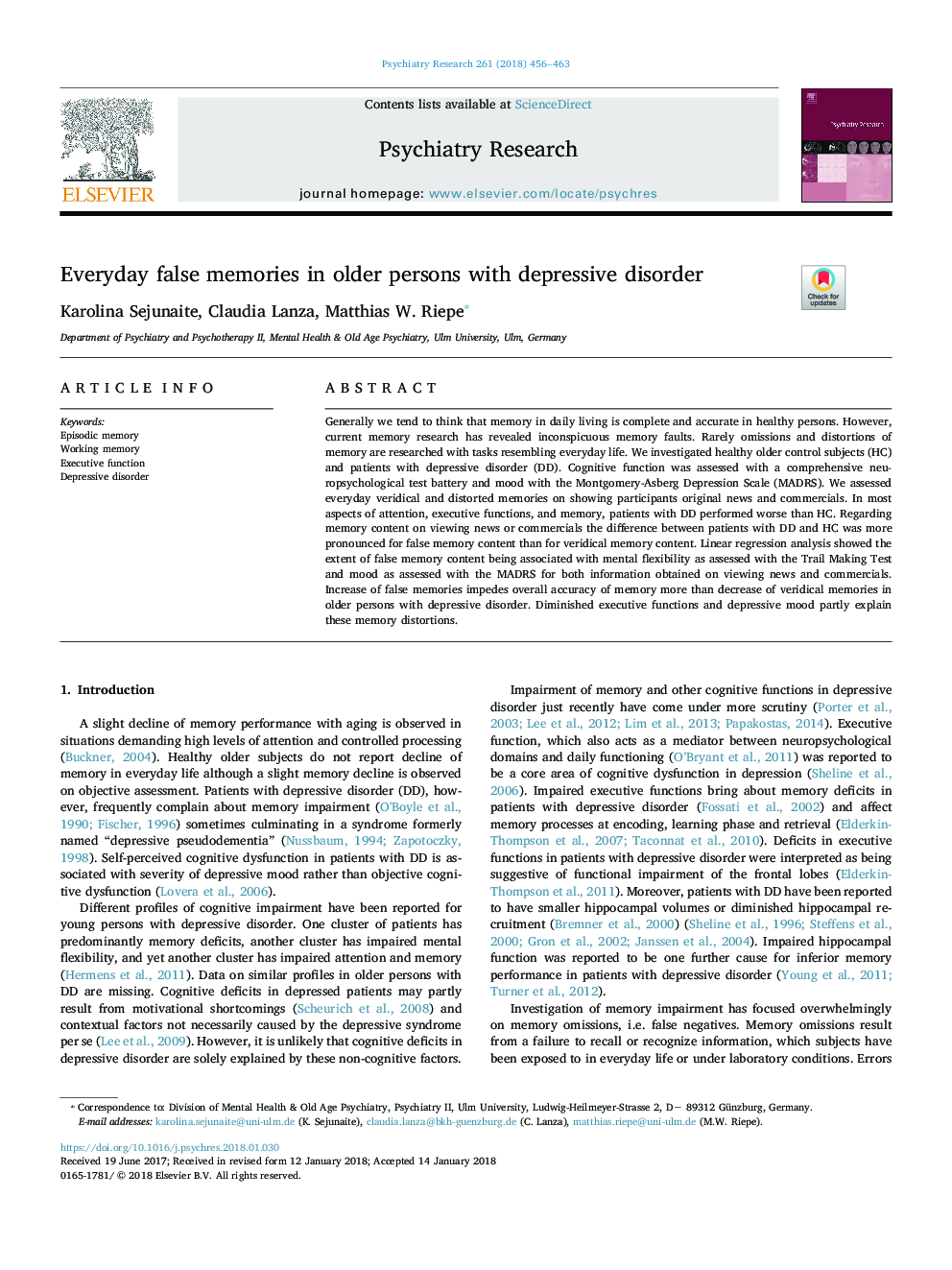| Article ID | Journal | Published Year | Pages | File Type |
|---|---|---|---|---|
| 6811956 | Psychiatry Research | 2018 | 8 Pages |
Abstract
Generally we tend to think that memory in daily living is complete and accurate in healthy persons. However, current memory research has revealed inconspicuous memory faults. Rarely omissions and distortions of memory are researched with tasks resembling everyday life. We investigated healthy older control subjects (HC) and patients with depressive disorder (DD). Cognitive function was assessed with a comprehensive neuropsychological test battery and mood with the Montgomery-Asberg Depression Scale (MADRS). We assessed everyday veridical and distorted memories on showing participants original news and commercials. In most aspects of attention, executive functions, and memory, patients with DD performed worse than HC. Regarding memory content on viewing news or commercials the difference between patients with DD and HC was more pronounced for false memory content than for veridical memory content. Linear regression analysis showed the extent of false memory content being associated with mental flexibility as assessed with the Trail Making Test and mood as assessed with the MADRS for both information obtained on viewing news and commercials. Increase of false memories impedes overall accuracy of memory more than decrease of veridical memories in older persons with depressive disorder. Diminished executive functions and depressive mood partly explain these memory distortions.
Related Topics
Life Sciences
Neuroscience
Biological Psychiatry
Authors
Karolina Sejunaite, Claudia Lanza, Matthias W. Riepe,
